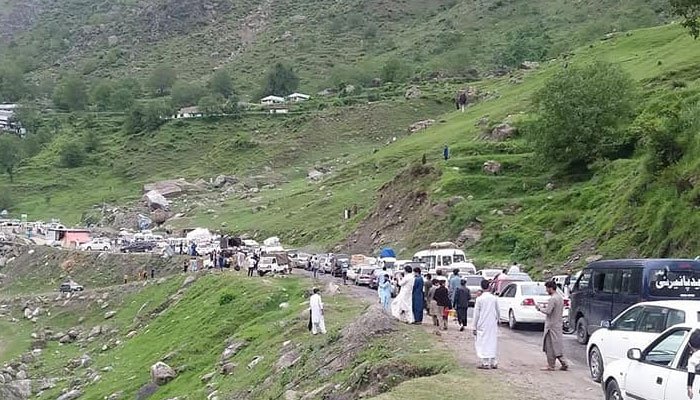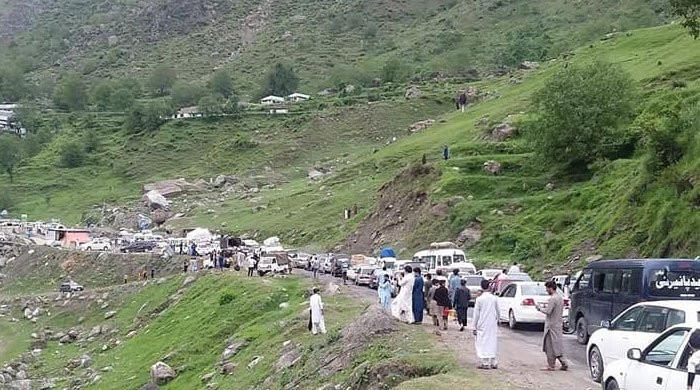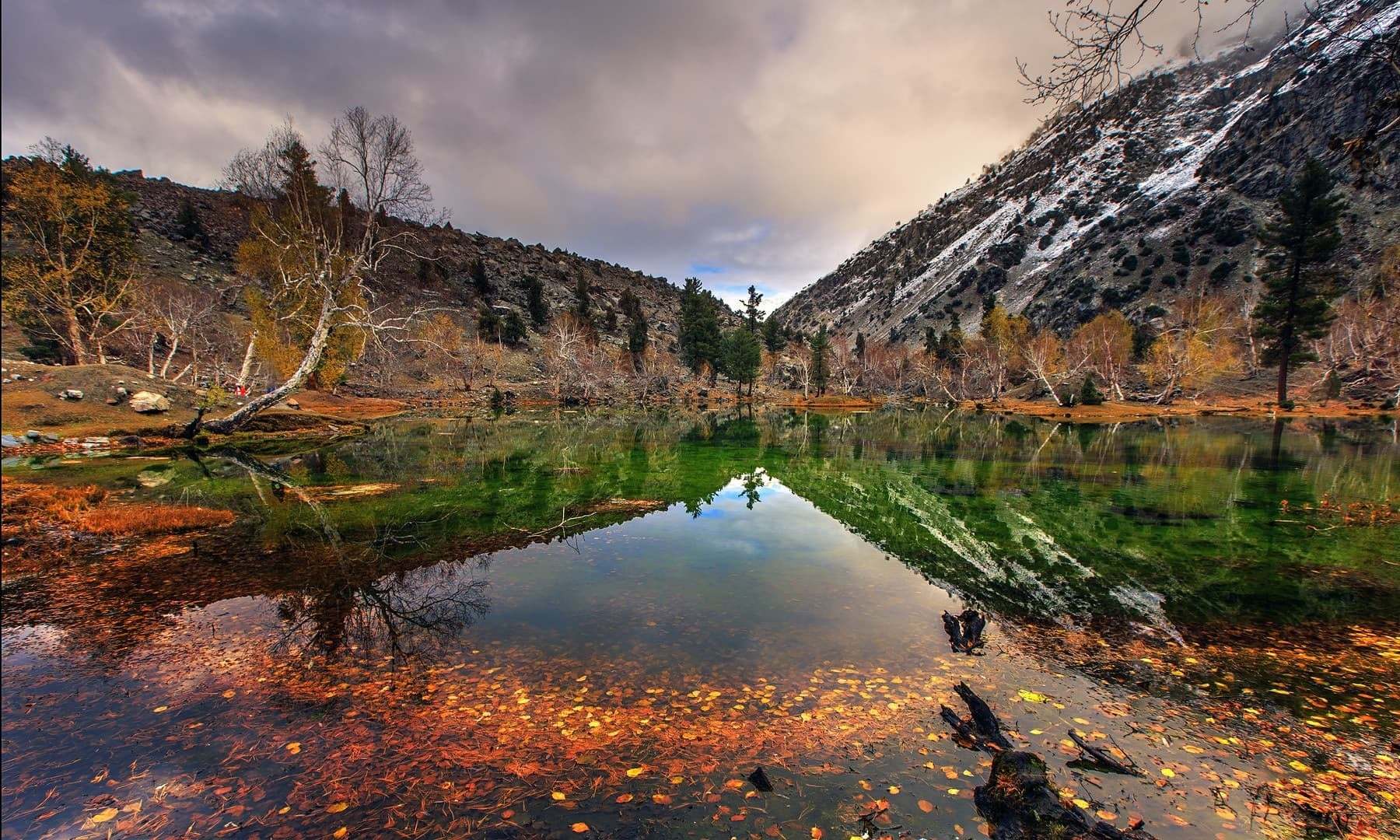ghazi52
PDF THINK TANK: ANALYST

- Joined
- Mar 21, 2007
- Messages
- 101,792
- Reaction score
- 106
- Country
- Location
'Never seen' influx of tourists in Kaghan Valley triggers fuel shortage
Web Desk
July 26, 2021

MANSEHRA: The influx of tourists to the Kaghan Valley in Khyber Pakhtunkhwa's Mansehra district has created a fuel shortage in the area, reported Geo News on Monday.
The tourists that have thronged to the area after Eid ul Adha are struggling to find fuel as the local petrol pumps are not equipped to cater to the demand. Long queues of vehicles could be seen at every filling station in the area.
Apart from the fuel shortage, the roads of the area have also been choked triggering major traffic jams as a record number of people headed to the area.
“Around 0.7 million vehicles carrying tourists have entered the valley so far and more motorists are on the way to this picturesque destination,” District Police Officer (DPO) Asif Bahadur said.
Tourists, who started rushing to the Kaghan Valley from the first day of Eid ul Adha, are still pouring in.
“We have never seen such a huge number of vehicles entering the valley but we are doing our best to manage the traffic flow within the available resources,” the police officer said.
The tourists who flocked to the valley from within the country and even abroad visited the Babusar Top, Saiful Muluk Lake, Lulusar and even Dodi Pat Sar.
“The Mansehra-Naran-Jalkhad road which links KP with Gilgit- Baltistan is in dire need of blacktopping and potholes must be filled,” Mohammad Jabran, a tourist from Karachi said.
He said that until the MNJ Road and its arteries, leading to the Saiful Muluk Lake and other such exotic places, were not carpeted, the prime minister’s tourism vision couldn’t be a success.
Hussain Deen, the chairperson of the Hoteliers Association in the Kaghan Valley, said that hotels and restaurants were full.
“The hoteliers and visitors are strictly following coronavirus standard operating procedures set by the government for the tourism industry,” he added.

 www.thenews.com.pk
www.thenews.com.pk
Web Desk
July 26, 2021

MANSEHRA: The influx of tourists to the Kaghan Valley in Khyber Pakhtunkhwa's Mansehra district has created a fuel shortage in the area, reported Geo News on Monday.
The tourists that have thronged to the area after Eid ul Adha are struggling to find fuel as the local petrol pumps are not equipped to cater to the demand. Long queues of vehicles could be seen at every filling station in the area.
Apart from the fuel shortage, the roads of the area have also been choked triggering major traffic jams as a record number of people headed to the area.
“Around 0.7 million vehicles carrying tourists have entered the valley so far and more motorists are on the way to this picturesque destination,” District Police Officer (DPO) Asif Bahadur said.
Tourists, who started rushing to the Kaghan Valley from the first day of Eid ul Adha, are still pouring in.
“We have never seen such a huge number of vehicles entering the valley but we are doing our best to manage the traffic flow within the available resources,” the police officer said.
The tourists who flocked to the valley from within the country and even abroad visited the Babusar Top, Saiful Muluk Lake, Lulusar and even Dodi Pat Sar.
“The Mansehra-Naran-Jalkhad road which links KP with Gilgit- Baltistan is in dire need of blacktopping and potholes must be filled,” Mohammad Jabran, a tourist from Karachi said.
He said that until the MNJ Road and its arteries, leading to the Saiful Muluk Lake and other such exotic places, were not carpeted, the prime minister’s tourism vision couldn’t be a success.
Hussain Deen, the chairperson of the Hoteliers Association in the Kaghan Valley, said that hotels and restaurants were full.
“The hoteliers and visitors are strictly following coronavirus standard operating procedures set by the government for the tourism industry,” he added.

'Never seen' influx of tourists in Kaghan Valley triggers fuel shortage
MANSEHRA: The influx of tourists to the Kaghan Valley in Khyber Pakhtunkhwa's Mansehra district has created a fuel shortage in the area, reported Geo News on Monday.The tourists that have...







